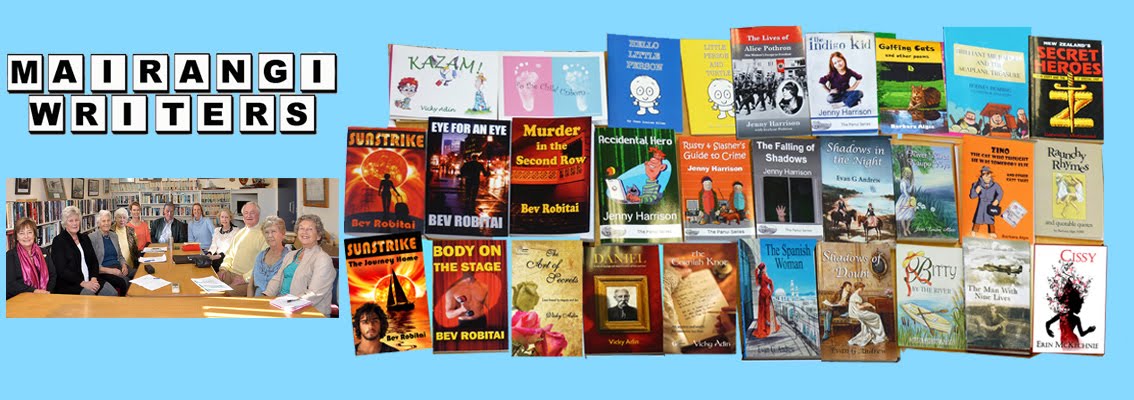Erin McKechnie writes...
With apologies to the male writers I know struggling to be recognised,
I have précised an interesting article by Alison Flood published in The
Guardian Weekly on 7th February. It would be nice to think it would
challenge some of the publishers and book sellers in New Zealand, but I have
little confidence they would even read it.
Figures last year from Vida, the American organisation for
women in the literary arts, show the huge imbalance in how male and female
writers, and reviewers, are treated. At the New York Review of Books, for
example, 16% of the reviewers were women, with 22% of the books reviewed
written by women. A similar
investigation in the Guardian revealed that the situation in the UK is no
better. In March 2013, 8.7% of books
reviewed in the London Review of Books were by women, rising to 26.1% in the
New Statesman, and 34.1% in the Guardian.
Daniel Pritchard, editor of the journal Critical Flame, has
announced a year dedicated to women writers and writers of colour, citing the
Vida figures as part of the reason for his decision and saying, “nothing will
change if people do not act morally within their spheres of control”.
“Women writers and writers of colour are under-served and
under-valued by the contemporary literary community,” he writes. “Silence on
this literary disparity has not been the problem over the past few years.
Inertia has.”
Author Joanna Walsh determined to do her bit to redress the
imbalance and started the ‘#readwomen2014’ project. It started with a few
Christmas cards which dubbed 2014 ‘the year of reading only women’, listing the
names of 250 women writers and encouraging recipients to actively choose to
read books from those authors. She was inundated with requests for more cards
and suggestions for other women authors to include.
Not only did the women respond positively; many men apart
from Pritchard have made reading resolutions of their own. Authors and readers
such as Matthew Jakubowski, Lilit Marcus and Jonathan Gibbs have all undertaken
to read only women writers. Jakubowski, an American author and literary critic
has resolved to read – and hence review – only books by women in 2014. In his
words – “if we don’t decide to do the work it takes to find valuable, important
books by women and under-represented authors, we will continue to miss them and
the loss will be ours.”
He believes news outlets still favour men over women when it
comes to book coverage and that publishers are more likely to spend large sums
on male writers. “The result of this investment by publishers is that readers
and literary critics are guided towards books by men.”
Gibbs, an author and journalist for the Independent
undertook his women-only reading stint after “reading Ben Lerner’s Leaving the
Atocha Station and basically getting peed off with that self-reflexive, ‘I know
I’m a shit and that makes me great’ male narrator type story.” Essentially, he
recognised he was reading through the filter of male consciousness and further,
that the book industry and media largely colluded in, or constructed the idea
that male writers are best. Gibbs assumes this is largely cultural and comes
down to the de Beauvoir quote about man being defined as a human being and a woman
as female, ie ‘Look, that’s the great literature, see how it writes about the
human condition!’ when in fact it’s only
writing about the male condition.
Of the publishers who have pulled out of New Zealand in the
last decade, how many were headed by men, do you think?
Erin McKechnie
